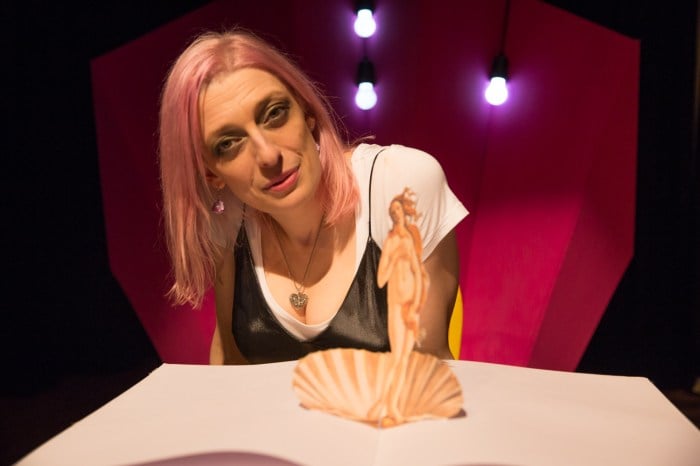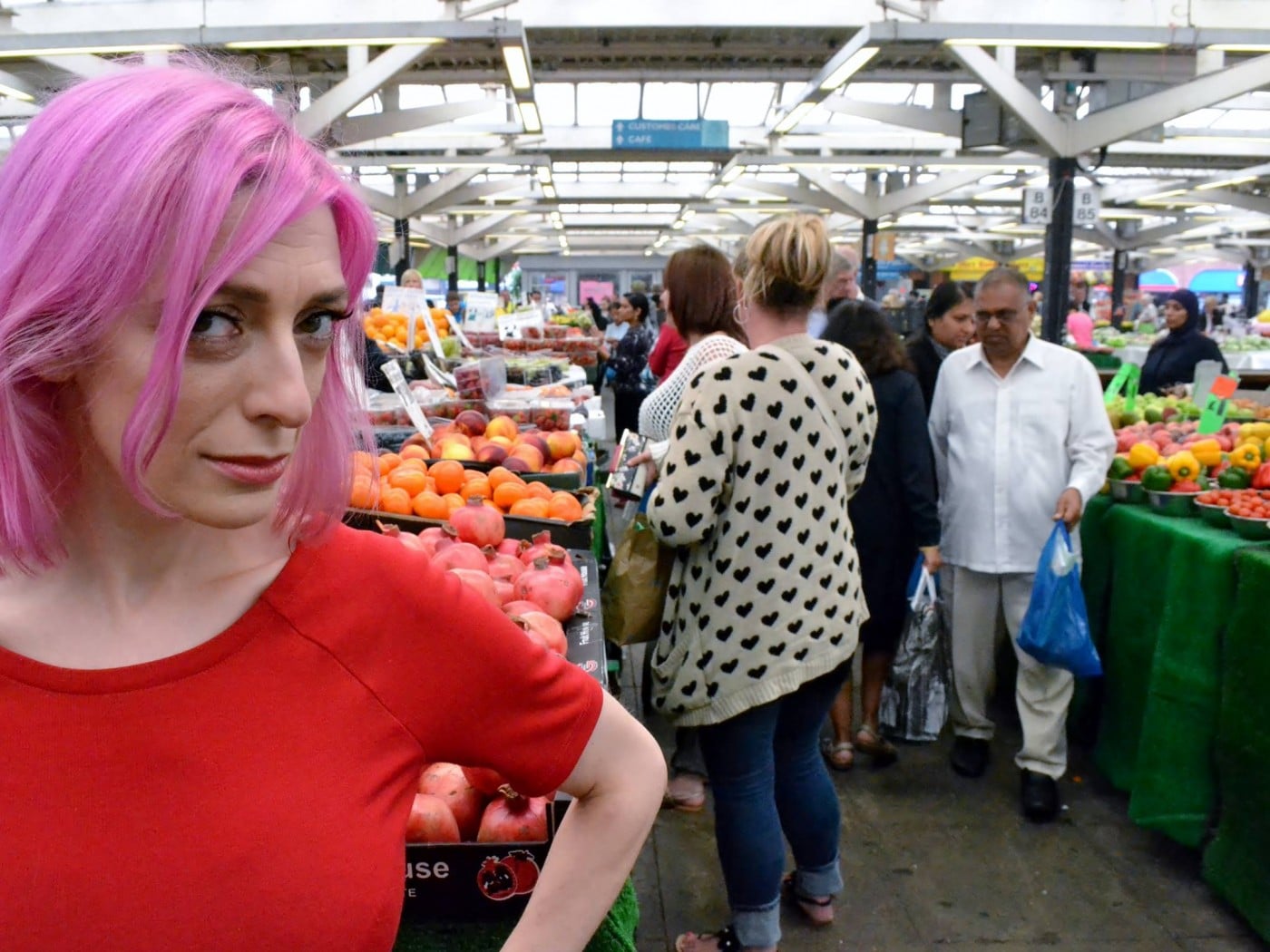 As part of JW3’s migration festival, Lydia Towsey will be performing her new stage show, The Venus Papers. I chat with her ahead of the show, with thanks to Renaissance One.
As part of JW3’s migration festival, Lydia Towsey will be performing her new stage show, The Venus Papers. I chat with her ahead of the show, with thanks to Renaissance One.
What if Venus, the Roman Goddess of love and beauty, washed up on a beach at this moment in time? How would she fare with customs and immigration? With perceptions of her as a refugee or a newcomer? It’s quite a question. And one that Lydia Towsey seeks to answer in The Venus Papers, her book of poetry and the name of the show taking place this week at JW3. The Venus Papers is a theatrical poetry show of arrivals, departures, and journeys, written and performed by Lydia, with onstage music and vocals by Dave Dhonau and Ola Szmidt and sees her joined by Julie Felix, Helen Ivory, and Dzifa Benson.
The plot is deceptively simple. Venus, the Roman goddess of love and beauty has washed up on British shores in time to witness the frenzy and aftermath of the 2017 snap election. Through the filters of an immigration officer, the media and the general public, she experiences what it is to be a 21st century woman at a time of upheaval and change.
Yet the ideas and areas it addresses are complex. Class, culture, politics, mental health, gender, migration, the environment, motherhood, eating disorders, and heritage are all explored in the piece, and all make for something of an engaging art form. It all started with a painting.
“I was drawn to Botticelli’s Birth of Venus for lots of reasons—as a woman, (now) new mother, practising life model, former visual artist, and as someone with the past experience of anorexia, something I experienced from my late teens through to my early 20s. I was initially interested in the disparity between how we see ourselves and how others see us, and what Botticelli’s vision of Venus—and our own contemporary notions of beauty—say about that,” Lydia says.
The “tales of 21st century women—every-woman, immigrant, refugee, outsider” presented in the book and on stage were gathered together from and in everyday life.
“I found the Customs Officer sitting on a train to London (from Leicester). I was looking over a draft of Venus at Customs and the man next to me, having read some the lines, started to tell me about his work—not as a Customs Officer, but as an advocate for political refugees, assisting followers of Falun Gong fleeing persecution in China. Elsewhere in the show I explore the voices of tabloid readers, finding these everywhere from on the news to in my family, people in a restaurant where I breastfed my baby… a group of women attending a life drawing class… an imagined interview between Barbie and a Sun journalist….”

The show moves between people, places, and times, so covers a lot of ground, and the voice of Venus draws on everyone from Diana Doors to Miss Havisham. The world we live in and that of literature has seen a huge number of voices within it. Positioning what we see as a modern issue in ancient times and framing it through the lens of classic literature offers an opportunity to explore and examine with fresh eyes. There’s also a lot to learn. For example, many stories and legends from Socrates and beyond are about questioning authority. “At a time of increased class division and inequality, such speaking truth to power and challenging of the status quo feels quite prescient.”
It’s not difficult to see how these questions and issues are as relevant in contemporary society as they were then. The same is true when it comes to national and cultural background, and elsewhere Venus is positioned as the everywoman and traveller. Here, Lydia uses her own experiences. “Like many people in the UK, I come from a family of immigrants, on my father’s side mostly Hungarian Jewish—though my great-great-grandfather was Mexican, his wife American—and there are people from other places and cultures too—my mother’s Welsh. At the same time I’m English and a descendent of the British Empire and therefore implicated in a story of colonialism and post-colonialism,” she says.
Whilst we often think of older civilisations as being homogenous and self contained, they were actually diverse, culturally plural, and exciting. The classical literature teaches us to look outward and “be open—welcome, new cultures and influences.” Just like us, Greek civilisation was drawn from and cross pollinated by numerous other places. And, also like us “literature is social, culture, political, and traveling.”
A quote from John Gardner comes to Lydia: “‘There are only two plots: (1) A hero goes on a journey (2) A stranger comes to town.’ The hero and the stranger—the group, and the other or outsider—is merely a matter of perspective.”
The themes in the Venus Papers are heavy. But the inter-disciplinary show is fun, engaging, emotional, and hilarious. Words help. Art touches us in places that politic rhetoric can’t. As Lydia says, literature “can reflect things. It can help us navigate, better understand, form an opinion and take action, through voting, campaigning or discourse. It can help because it can inspire, invigorate, bring people together, and present different views. At a time when borders are becoming hemmed in, literature is open.”
The Venus Papers is showing this Thursday 29th June at JW3. For full details and to book your ticket, visit their website.
Filed under: Theatre & Dance

Comments